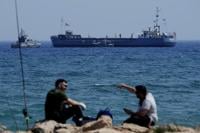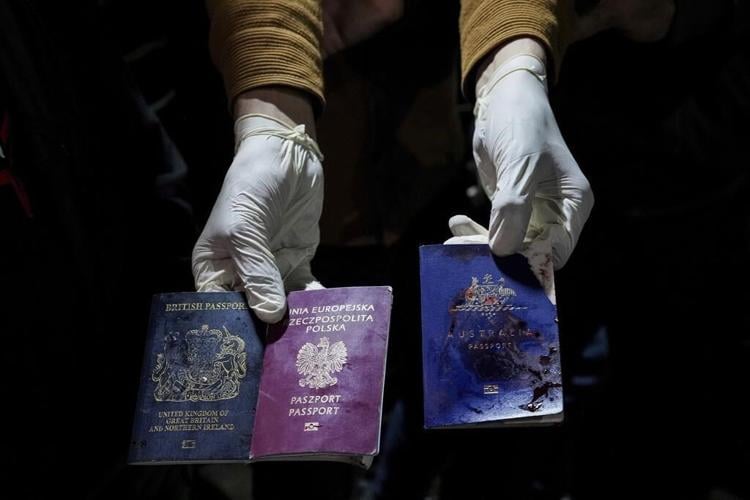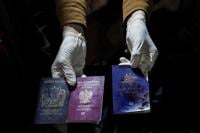JERUSALEM (AP) — World Central Kitchen, the food charity founded by celebrity chef José Andrés, called a halt to its work in the Gaza Strip after an Israeli strike killed seven of its workers, mostly foreigners.
The group, which said it will make decisions about longer-term plans in the region soon, has been bringing desperately needed food to Gazans facing widespread hunger and pioneered the recently launched effort to deliver aid by sea from Cyprus. Its absence, even if temporary, is likely to deepen the war-torn territory's misery as the United Nations warns that .
Here's a look at the charity's work in Gaza and what its absence could mean:
WHAT IS WORLD CENTRAL KITCHEN?
Founded in 2010, World Central Kitchen delivers freshly prepared meals to people in need following natural disasters, like hurricanes or earthquakes, or to those enduring conflict. The group has also provided meals to migrants arriving at the southern U.S. border, as well as to hospital staff who worked relentlessly during the coronavirus pandemic.
The aid group sends in teams who can cook meals that appeal to the local palate on a large scale and fast.
“When you talk about food and water, people don’t want a solution one week from now, one month from now. The solution has to be now,” Andrés is quoted as saying on the group's website.
World Central Kitchen has worked in dozens of affected areas and currently has teams in Haiti, addressing the needs of Ukrainians displaced by Russia's invasion, as well as providing meals to people affected by the war in Gaza.
WHAT HAS IT DONE DURING THE WAR IN GAZA?
Teams from the charity have fanned out across the region since on Oct. 7 and throughout . It has fed Israelis displaced by the attack as well as former hostages, according to its website, and people in Lebanon displaced by fighting with Israel. But its work in Gaza has been the most demanding.
In Gaza, the group says it has provided more than 43 million meals to Palestinians.
The group has set up two main kitchens, in the southern city of Rafah and the central town of Deir al-Balah. It lends support to 68 community kitchens throughout the territory, serving more than 170,000 hot meals a day. The group ramped up its work during Ramadan, the holy month when Muslims traditionally fast from sunrise to sundown and then eat a lavish meal, distributing 92,000 food boxes or about 4.7 million meals.
The group has also provided meals through airdrops and has led carrying hundreds of tons of food for northern Gaza, where the food emergency is most acute.
In an interview with The Associated Press last month, Andrés credited the charity's sea deliveries with prompting the U.S. to declare that it would build a floating pier for aid delivered to Gaza by sea.
"I think this has been our achievement,” he said.
WHAT WILL THE CHARITY'S ABSENCE MEAN FOR PEOPLE IN GAZA?
With World Central Kitchen immediately suspending its work, tens of thousands of meals a day won’t be handed out.
Following the deadly strike, Cyprus’ foreign ministry spokesperson said aid ships that arrived in Gaza this week will return to the Mediterranean island nation with some 240 tons of undelivered aid. Roughly 100 tons have already been offloaded, the spokesperson said.
Other aid organizations are still on the ground providing assistance to Palestinians, including the U.N. But aid groups say supplies are and once they have entered Gaza, delivery is hobbled by logistical problems as well as the constant fighting. Israel denies there is a food shortage in Gaza and blames the U.N. and other aid groups for failing to scale up deliveries inside the territory.
World Central Kitchen was at the vanguard of the two sea shipments that have arrived in Gaza so far. It was not clear in what capacity the sea corridor would continue without the group, but the president of Cyprus said Tuesday that more aid could be shipped to Gaza from Cyprus “before the end of the month,” as the U.S. completes construction of a floating pier off the Palestinian territory’s coastline.
President Nikos Christodoulides said the Cyprus-Gaza aid shipments “will continue as humanitarian needs are there.”














































